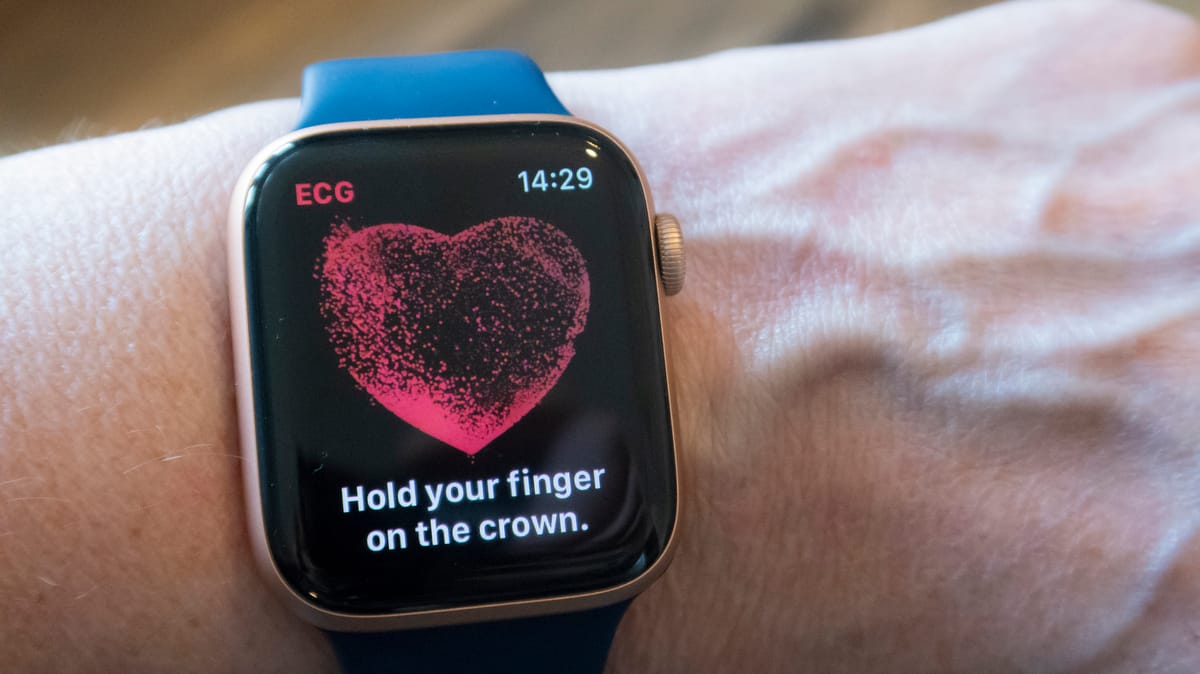Watching Apple Health

The big story about the future of everyone's health and wellbeing this week seemed to involve Tuesday night's Presidential Debate, and as such there wasn't a lot of news about fitness technology for me to summarize here. Once upon a time, perhaps, Apple's Fall event – its unveiling of new iGadgetry – would have been a bigger story, but as The New York Times remarked, "The iPhone has grown predictable." These media events have too, and I don't think the company's livestreams are anywhere quite the draw that they once were. Apple introduced its new "Apple Intelligence" features which will appear in upcoming iOS releases, which I'm sure the tech industry hopes will help to mainstream AI. Reminder: the industry hoped that the Vision Pro would help mainstream VR, and we can see how well that's gone over. So perhaps Apple is no longer the tastemaker that it once was.
Or perhaps the adoption of new technologies simply does not have that "hockey stick" shape that startups like to put on their slide-decks. I mean, according to a survey by market researchers Parks & Associates, nearly half of US households own and use "wearables." If true, that seems pretty significant. What are the ramifications of the technology industry – and not just Apple – tracking and analyzing our own personal health data? How are wearables shaping how we think about our bodies? How is the tech industry shaping what we think we know about ourselves?
At Monday's event, Apple announced a couple of new health-related features in its latest watch, including the detection of sleep apnea. (The new watch will not monitor blood oxygen levels as that feature has been removed due to a patent dispute.) The latest AirPods will also feature hearing aid technology – so cue the stereotypical Wired headline, "Apple’s AirPods Pro Could Soon Disrupt the Hearing Aid Industry." The FDA seems cool with this.
In other Apple news: "Apple Vision Pro's Eye Tracking Exposed What People Type" (including passwords and PINs).
Elsewhere in health gadgetry: Gizmodo reviews The Vertica, a gadget that hopes to treat erectile dysfunction. Good luck with that. Hi-tech bifocals, which nobody asked for, but okay. "I Screwed Up My 5K Time by Training With the Pixel Watch 3’s AI Running Coach," writes Adrienne So. In true Wired fashion, the tl;dr is that robots can't replace coaches yet. "Video and audio of therapy sessions, transcripts, and other patient records were accidentally exposed in a publicly accessible database operated by the virtual medical company Confidant Health." So that’s fun. Oura, maker of a health-tracking ring, has acquired the “metabolic health” startup Veri.
Aging Ventures: Wired profiles Mark Cuban, who’s leaving Shark Tank but remains committed to “disrupting” the pharmaceutical industry. As I’ve said before, it’s going to be fascinating to watch aging GenX and Boomer VCs (cough white men cough) invest, particularly as the only future they care about is their own (the only bodies they can imagine, same same).
If not your body, then…: "Inside Google’s 7-Year Mission to Give AI a Robot Body," by Hans Peter Brondmo, "the head of Alphabet’s AI-powered robotics moonshot."
Health-technology adjacent: "Google’s AI Will Help Decide Whether Unemployed Workers Get Benefits" in the state of Nevada, Gizmodo reports.
The science says: lifting weights can help you live longer. Perhaps. Perhaps the "body roundness index" should replace the BMI — or rather, suggesting that we should measure waist circumference too. Sure. Whatever. It's all metrics, all the way down.

Thanks for subscribing to Second Breakfast. I'll have more to say in Monday's "Extra Mile" newsletter (paid subscribers only) about AI. Maybe.





